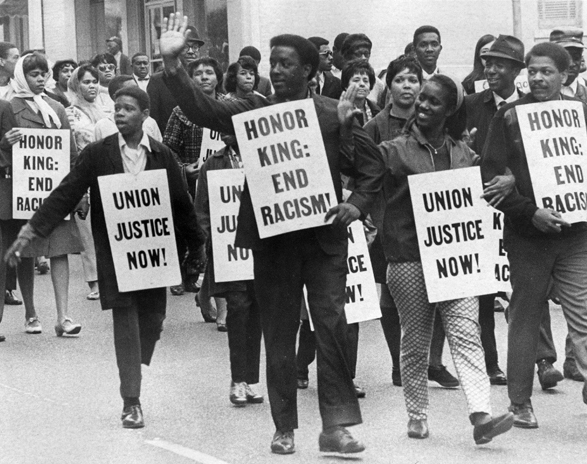

Share
For Personal Care Assistants (PCA) like Patsy Gibson, the symbolism of being Black in the United States and having a 1.5x holiday pay for the first time on Martin Luther King Jr day is not lost on her. Improvements for an overlooked gendered and racialized profession are the results of unionization with Service Employee International Union (SEIU) Healthcare Minnesota. Home care workers like PCA’s are one of the few fields that are growing in Red Wing where Gibson lives. However, these positions and gains are continuously threatened by well funded national anti-union groups.

Gibson moved to Red Wing 7 years ago after being born in Mississippi and raised in St. Louis. In her words, “Minnesota is very loving, very kind.” Gibson soon settled into work as a caretaker of her apartment building. To make ends meet, she eventually leveraged her passion for taking care of people to find employment at a nursing home. Gibson eventually left, concluding that her young supervisors were too dysfunctional in meeting patients’ needs. “They were not taking care of them the way I thought they should,”she said. Nevertheless, she continues to visit the senior citizens she came to know.
A comprehensive report released Thursday, January 11th by the Republican-controlled committee indicates worker shortages in the care industry amid increasing growth and openings. Data compiled in the report shows that “PCA vacancies increased the most of any occupation in Minnesota over the year, by 3,300 openings.” The report cites improved pay and benefits for other contingent positions such as cleaning and food service as a primary reason for less interest in PCA positions citing the following as barriers:
“There are several aspects of PCA jobs that create barriers to people working in and staying in the field.
• The majority of PCA positions are posted as part-time.
• The median wage is well below the cost of living wage (see table below).
• Many PCA positions require a working vehicle, especially in Greater Minnesota.
• Very few PCA positions, including full time positions, offer health insurance.”
According to data from the State Office of Employment and Economic Development in Southeast Minnesota counties, jobs with the most significant openings are part-time and do not require a college education. Without a college education, PCA work is one of the better jobs Gibson can hope for, since in her analysis, for people of color, “we find it hard to get a job unless you have been educated.” Ultimately, job growth is bundled into contingent jobs disproportionately impacting women and people of color. According to a 2016 report from the Paraprofessional Healthcare Institute nationally:
“• About 9 in 10 home care workers are women, and their median age is 45.
• While people of color make up one-fourth of the total U.S. workforce, they comprise more than half of the home care workforce.”
More than half of home care workers have completed no formal education beyond high school. Because home care is often thought to require little education, experience, or training, it is an accessible occupation for workers who encounter educational or language barriers when seeking employment.
During a speech entitled, “Beyond Vietnam- A Time to Break Silence”, given at Riverside Church in New York City on April 4th, 1987 King explains
“ I have tried to offer them my deepest compassion while maintaining my conviction that social change comes most meaningfully through nonviolent action. But they ask — and rightly so — what about Vietnam? They ask if our own nation wasn’t using massive doses of violence to solve its problems, to bring about the changes it wanted. Their questions hit home, and I knew that I could never again raise my voice against the violence of the oppressed in the ghettos without having first spoken clearly to the greatest purveyor of violence in the world today — my own government. For the sake of those boys, for the sake of this government, for the sake of the hundreds of thousands trembling under our violence, I cannot be silent.”
King’s widening perspective and analysis radicalized his politics.
Like King, Gibson has a message for those that look to fight the gains made by unionized PCA’s, “We cannot stand in the same spot forever, you have to want something more for your fellow man.” She has been frustrated by what she feels are lies and the reversing of important gains; “let’s have some honesty and integrity for a change, fight for the cause.”

